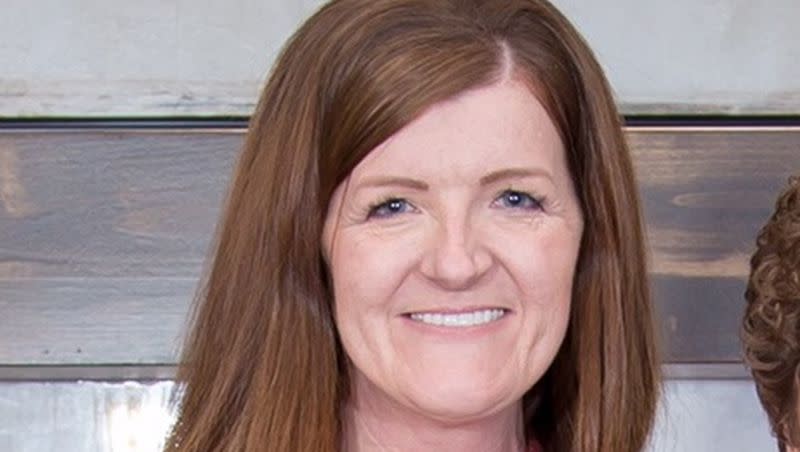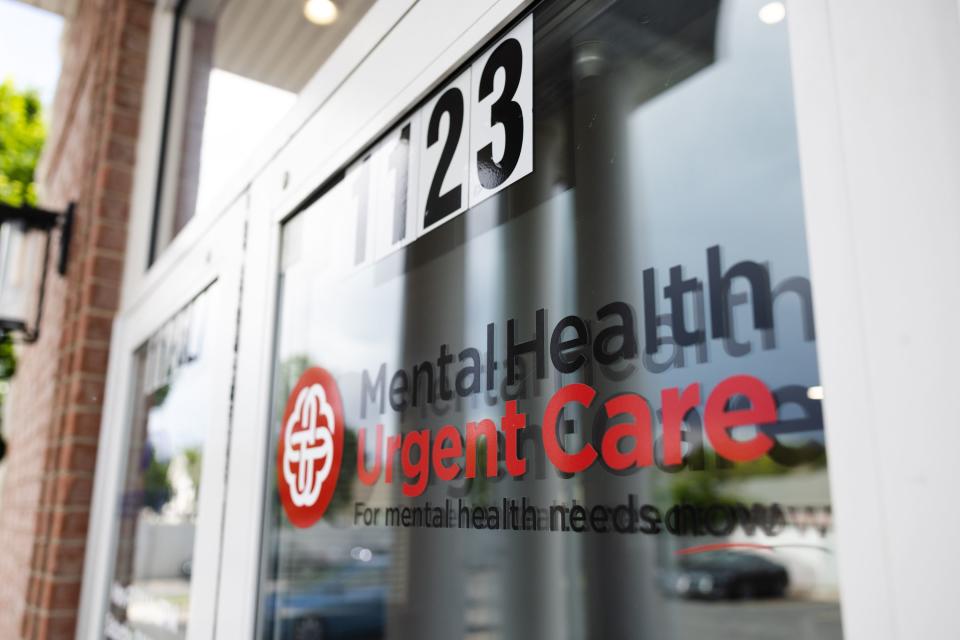Bridging the gap between traditional mental health care and the emergency room

- Oops!Something went wrong.Please try again later.
Starting out, it was never Dr. Kelly Wosnik’s intention to become a mental health pioneer.
Yet here she is, standing proudly in front of the business she’s pioneered: Mental Health Urgent Care — Utah’s first urgent care clinic devoted entirely to mental health emergencies.
The clinic opened in May to considerable fanfare. The mayors of Orem and Provo were there for the ribbon cutting, as was state Sen. (and noted mental health advocate) Daniel Thatcher and the Orem Police Department, among others, people who are well aware of the critical need for mental illness to be treated the same as its physical counterparts.
In a sea of urgent care facilities located up and down the Wasatch Front and beyond that treat everything from scratchy throats to broken bones, now there’s finally one dedicated to treating urgent mental health issues.
“With regular medical care you can go to urgent care or you can go to the ER,” Wosnik explains. “But with mental health, if there’s something urgent or life threatening, there’s only the ER. And the only thing they do at the ER for mental health is admit you if you’re suicidal, and if you’re not they tell you to follow up with your regular doctor.”
That’s a process that can and often does take days, weeks, months even. Time for bad to go to worse.
* * *

“Mental health was actually my least favorite subject in school,” Wosnik confesses.
Twenty years ago, after graduating with her doctorate of nursing practice from the University of Utah, her plan as a nurse practitioner was to run a “normal” family practice focused on sore throats, headaches, stomach aches, colds and so forth; the usual physical health suspects.
“Someone comes in, you have an immediate answer for them, you fix them and send them on their way,” she recalls.
But the more people she treated at Bristol Health, the clinic she opened in Utah County, the more she heard variations of, “By the way, I’m having panic attacks,” or “By the way, I’m having suicidal thoughts.”
She did what she could, but she was way too busy to give these mental health issues all the attention they deserved, and referring her patients to psychiatrists and therapists more often than not entailed long waits.
It bothered her that mental illnesses got such short shrift. She knew firsthand what it’s like to be out of the medical mainstream and have to clamor for attention. Kelly was born with a rare genetic skeletal disorder called CCD (cleidocranial dysplasia) and had to endure multiple facial surgeries when she was younger. As a result, “I had times in my own life with depression and anxiety,” she says. (As a nurse practitioner, she started the nonprofit CCD Smiles, dedicated to bringing awareness and help to others with the disorder. Perhaps you’ve seen her in publicity appearances with her friend, “Stranger Things” star Gaten Matarazzo, who also has CCD.)
Growing up with a military veteran only heightened her empathy for mental illness sufferers. When Richard Wosnik returned from the Vietnam War 50-plus years ago, he carried with him a case of PTSD. But no one diagnosed it, and certainly no one talked about it. While Kelly was a girl, mood swings, detachment and flashbacks were all part of the father she knew.
It wasn’t until her dad was in her 60s that she began to appreciate what he’d lugged around untreated for decades. On a family genealogy trip to Poland, it was just the two of them; they had plenty of time to talk. In the course of their conversations, Kelly recognized her dad’s symptoms were similar to many of the patients she was treating for depression and anxiety.
When she and her dad returned from that trip in 2015, Kelly converted her practice at Bristol Health to full-time mental health care. In the beginning she was the sole provider. Eight years later, she oversees a staff of 12 therapists and 11 medical providers. In May, the clinic treated its 15,000th patient.
Now, she’s gone a step beyond that, by adding urgent care to the lineup.
At first, Mental Health Urgent Care (mentalhealthurgentcare.com) will be open on weekday evenings from 6-10 p.m. and from 10 a.m. to 4 p.m. on Saturday and Sundays.
“Our doors are open for you,” the website proclaims. That means the actual physical doors located at 1123 W. Center Street in Orem, as well as the internet’s virtual doors.
“We can help any resident of Utah wherever they live,” says Wosnik.
Over time, Wosnik hopes for two things: One, the urgent care operating hours will expand, and two, that she’ll have some competition.
“Utah ranks 41st out of 50 states for a high prevalence of mental illness and low rate of access to care,” she points out, citing a study by Mental Health America. “Last year 34% of Utahns with mental illness did not receive treatment and 27% of those reported not knowing where to go for care.”
The need for treatment is great. And urgent.

